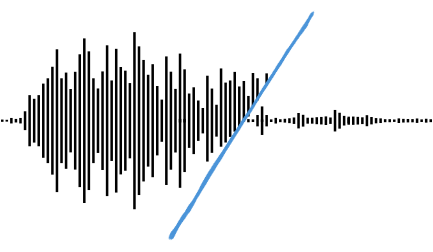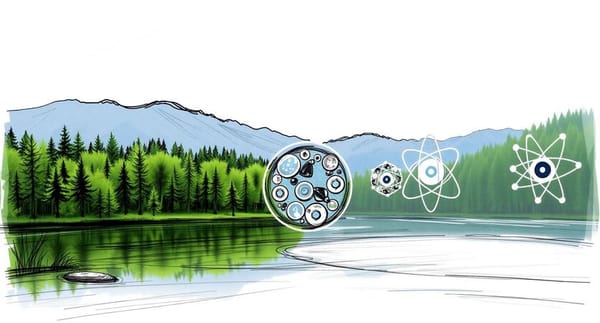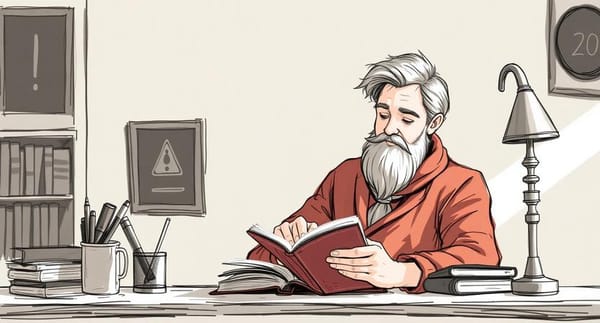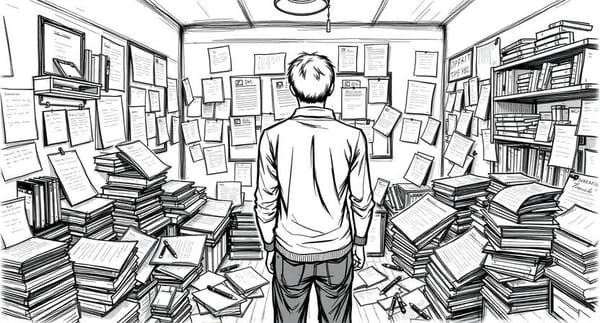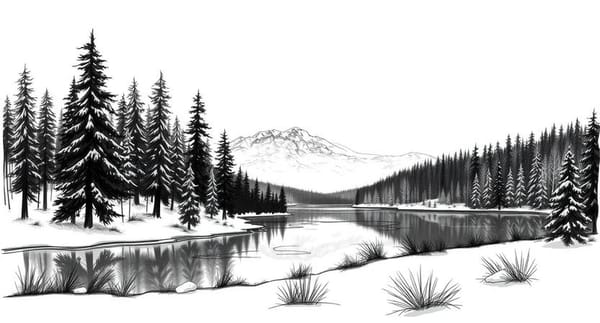Setting the scene
I considered myself lucky to find back into science. But in place of success, doubt slowly crept in.

I expected my PhD to be demanding and difficult. When I enrolled in the program six years ago, I was prepared to deal with the many challenges of academia. I had observed them first-hand during my master’s and was under no illusion about any of it. Or so I thought.
I had just moved town and my applications didn’t attract a lot of attention. Though I find my background[1] useful in many contexts, the marketplace clearly disagreed. Even the unemployment office told me I’d “have to find something on my own” as they wouldn’t be able to provide much support. So, I began contacting all departments even just remotely related to my field to find opportunities. One of the few positive replies pointed me to a doctoral program with the application deadline only a few days out. With nothing to lose and no other leads, I promptly applied.
A few days later, I presented my master’s thesis to the most distinguished crowd I had ever addressed: the doctoral college’s faculty; about fifteen distinguished experts from four different institutes, all leading groups of research, some well decorated. Despite my absence from academia, I handled myself well and genuinely enjoyed this return to the intellectual realm. I was calm and collected, answered all questions directly, clearly, and even managed a well-timed off-the-cuff joke just before I left. Things went perfectly, yet I didn’t get the job.
Another contestant had already been working on the project during their master’s. Obviously, they were the best candidate, not least because they actually knew the employed experimental method. I didn’t mind much. My priority was figuring out whether a step back into science would be right for me, and the experience left nothing ambiguous: It absolutely was.
A few weeks later, an unexpected call had me celebrate. My competitor decided against the position after all — for good reason, as I would later learn — and so it was offered to me.
It was challenging to find back into science. I entered an entirely new field, meaning there was a lot to learn, and the project proved complex too. Two decades of research meant I wouldn’t run out of reading material anytime soon. Nonetheless, I steadily gained footing and soon started genuinely enjoying my time. Academia’s benefits came to the fore: the flexible hours, the intense concentration that permeates scientific institutions, the sharp-minded colleagues, the pushing the boundaries of knowledge. Pretty much everything fell into place, except the project itself.
The core experiment stubbornly refused to work, despite growing competence and the fact that all preliminary checks, sample preparations, and quality controls revealed nothing out of the ordinary. By all indications, things should have been easy. But then again, that’s what science so often is: A constant troubleshooting and tinkering, trying to figure out why things don’t pan out as anticipated. And while it was not yet time to panic, one thing did raise an eyebrow: the project — including that particular experiment — had been running for years. Why it so suddenly stopped working remained, for the moment, unclear.
It was thus a welcome break when the department hosted its annual week-long conference. Its attention-demanding preparation provided a breather from frustration, and the meeting itself proved a rich source of motivation. As a newcomer, I was surprised to learn what modern biophysicists investigate and impressed by modern technology’s many possibilities. For a brief moment, I felt recharged. The project might be stuck, but I had access to plenty of resources: The doctoral college spanned across several institutes, meaning many methods, many minds. And my efforts were just beginning. Eventually, the issue would be found and dealt with.
Among the conference’s many encounters, two stand out even today: One, the engaging conversation with an advanced researcher who politely but genuinely questioned whether our approach was possible at all. And two, the silently voiced skepticism about the project-foundational results by a respected former lab member (and direct colleague of my predecessor): “I don’t know how that’s possible, but if [they] say [they] measured it, I believe [them]”.
It didn’t register at the time, but between these critical accounts, the more-informed competitor’s rejection of my position, the growing evidence of troubleshooting experiments, and the mysteriously abrupt (yet consistent) failing of what had seemingly worked so well before, foreboding indications were starting to mount.
In fitting parallel to what was still to come, the conference-brought joy soured as the week went on. More and more people got sick. I myself was knocked out cold for a couple of days, with an intensity I hadn’t known for years. My sense of taste was off for weeks, a particularly annoying symptom for coffee enjoyers such as myself. Before it had normalised, the country locked down. Covid had arrived.
Behaviour, cognition, and neurobiology. ↩︎
